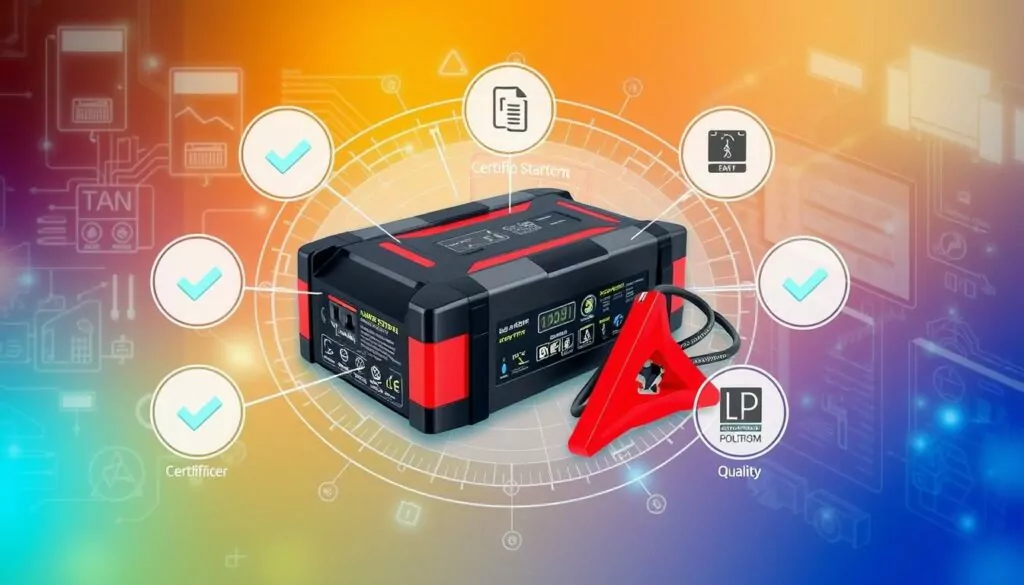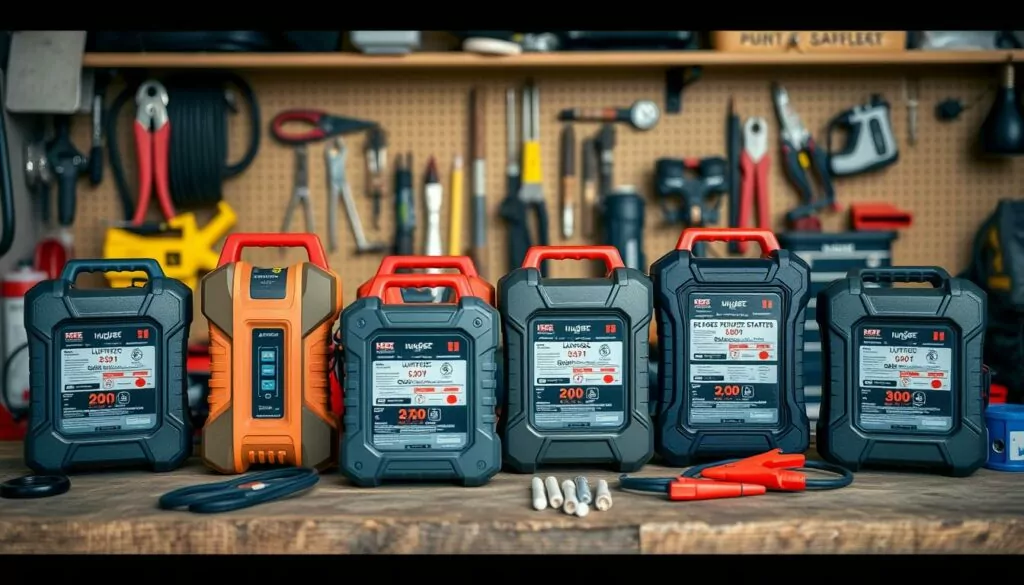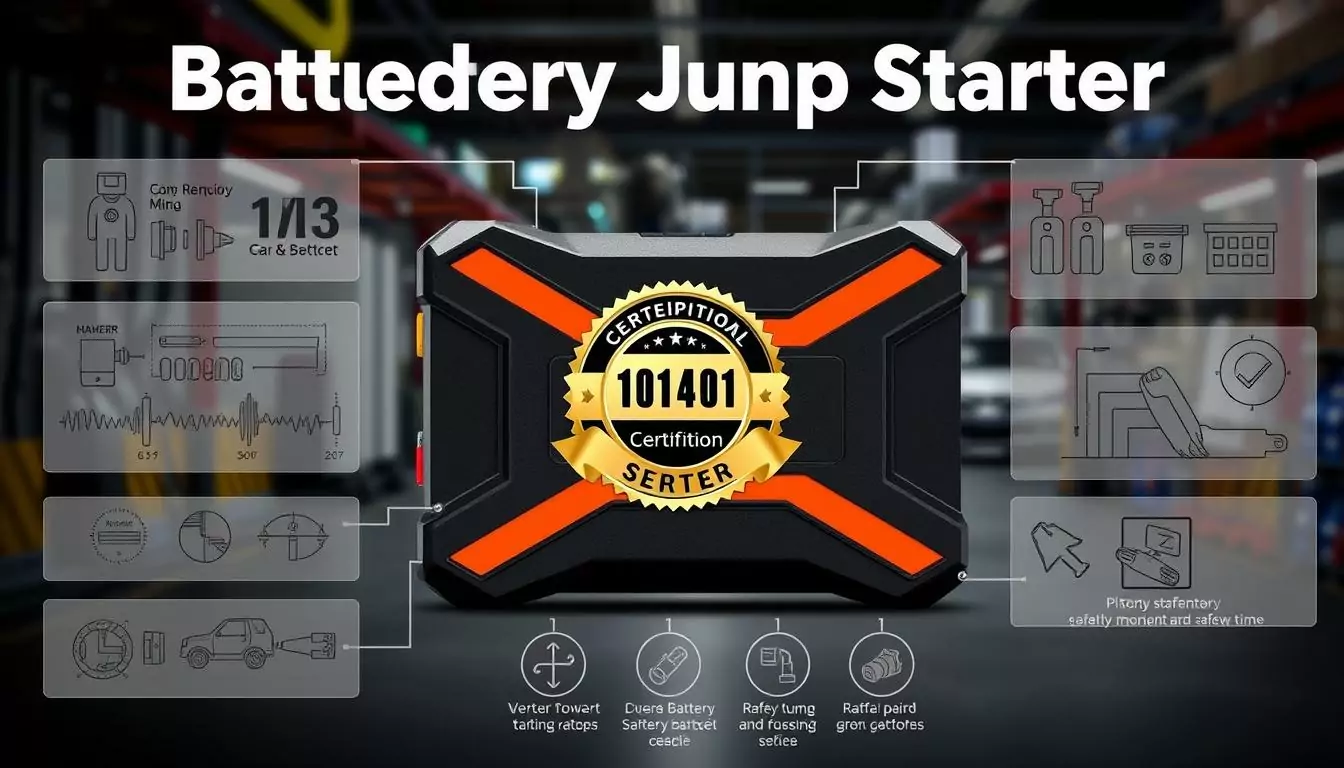Picture this: it’s a frosty March morning in 2025, and your car refuses to start. You grab your trusty battery jump starter, and within minutes, you’re back on the road. But have you ever wondered what makes these little lifesavers so dependable? The secret lies in certification standards—those unsung heroes ensuring your jump starter is both safe and effective. Let’s dive into why these standards are a big deal and how they can help you pick the perfect device for your next roadside emergency.
What Are Jump Starter Certifications, Anyway?
So, what’s the fuss about certification standards? Simply put, they’re like a rulebook manufacturers follow to make sure their jump starters don’t just work—they work safely. These guidelines cover everything from electrical safety to how well the battery holds up in a snowstorm. I’ve had my fair share of car troubles, and knowing my jump starter’s been put through the wringer gives me some serious peace of mind. It’s not just about starting your engine; it’s about doing it without frying your car—or yourself!

Why Should You Care About Certifications?
Certifications aren’t just fancy stickers on the box—they’re a promise. For us drivers, they mean the jump starter’s been vetted for car battery safety and can handle vehicle jump start procedures like a champ. For manufacturers, it’s a benchmark to aim for, keeping them in line with industry rules. Think of it like a driver’s license for your jump starter—proof it’s road-ready. Without it, you’re rolling the dice on quality.
The Big Three: Key Jump Starter Certifications to Know
Not all certifications are created equal, and in the world of emergency vehicle accessories, a few stand out. Let’s break down the heavy hitters—UL, IEC, and SAE—and see what they bring to the table. Trust me, knowing these can save you from a dud purchase.
- UL Certification: Think of UL 2743 as the gold standard for electrical safety. It tests for risks like overcharging or short-circuiting—stuff you don’t want happening at 7 a.m. in a parking lot.
- IEC Compliance: IEC 62133 zeroes in on battery safety, while IEC 61960 ensures performance doesn’t flop. These are your battery’s bodyguards.
- SAE Standards: SAE J1494 is all about the cables and connectors—making sure they can handle the juice without melting down.
| Certification | What It Covers | Why It Matters |
|---|---|---|
| UL 2743 | Electrical Safety | Prevents shocks and fires |
| IEC 62133 | Battery Safety | Stops leaks and explosions |
| SAE J1494 | Cables & Connectors | Handles high currents safely |
Why Certified Jump Starters Are Worth It
Okay, so certified jump starters sound great—but what’s in it for you? A lot, actually. These devices aren’t just about getting your car going; they’re about doing it right. Here’s why I’d never skimp on certification.
Safety First (Always)
Certified jump starters come with built-in safeguards—like protection against sparks or overheating—that keep you and your ride out of harm’s way. They’re tested tougher than a mechanic’s ASE exam, where only about two-thirds pass on the first go. That’s the kind of rigor I want behind my emergency vehicle accessories. No one’s got time for a fire hazard masquerading as a fix!

Reliability You Can Count On
Ever had a gadget fail when you needed it most? Certified jump starters are built to perform, whether it’s freezing or sweltering out there. They hit high-performance marks—think ISO 9001 for businesses—ensuring they won’t leave you stranded. I’ve learned the hard way that a cheap, uncertified model isn’t worth the savings when you’re late for work.
Peace of Mind? Priceless
Here’s the kicker: a certified jump starter lets you hit the road with confidence. It’s like knowing your favorite coffee shop won’t mess up your order—you just trust it’ll deliver. With certifications backing your device, you’re ready for whatever battery curveballs 2025 throws your way. Who doesn’t love that feeling?

Note: Replace “example-video” with a relevant YouTube video ID about jump starter usage for a real embed!
FAQs About Jump Starter Certifications
What’s the difference between UL and IEC certifications?
UL focuses more on overall electrical safety and performance (like UL 2743), while IEC targets battery-specific standards (like IEC 62133). Both are key, but they tackle different angles of safety.
Can I use an uncertified jump starter safely?
You *could*, but it’s a gamble. Uncertified models might lack proper testing, upping the risk of failure—or worse, damage to your car. Why chance it?
How do I check if my jump starter is certified?
Look for labels like UL, IEC, or SAE on the packaging or manual. If it’s vague, check the manufacturer’s site or ask customer support—don’t assume!
Do certifications affect the price?
Yep, they often do. Certified jump starters cost more upfront due to testing fees (think $5,000-$20,000 per standard), but the reliability’s worth every penny.
Are all certified jump starters the same?
Not quite. Different brands meet different standards—some might have UL and SAE, others just IEC. Compare certifications to match your needs.
Ready to upgrade your roadside game? Knowing these certification ins and outs can steer you toward a jump starter that’s safe, reliable, and ready for action. What’s your must-have feature in a jump starter—let me know below!
